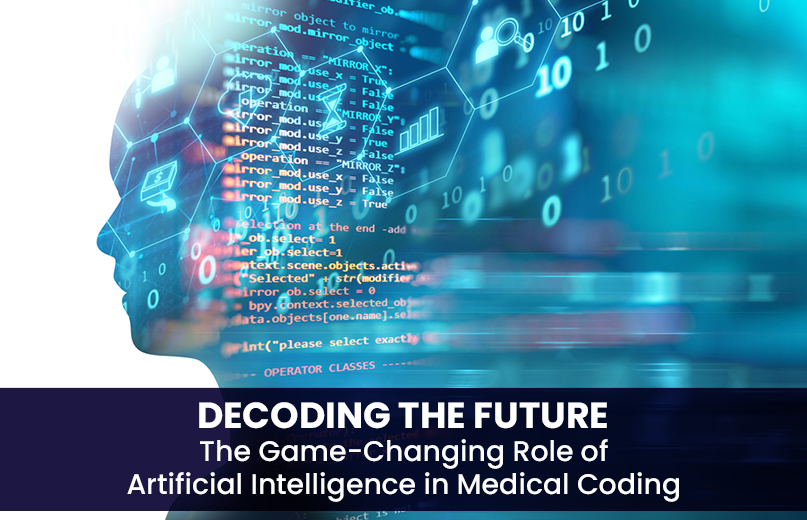
Decoding the Future: The Game-Changing Role of Artificial Intelligence in Medical Coding
The healthcare industry, renowned for being immutable and resistant to change, is actively embracing technology, like never before. Amongst the plethora of innovations, one stands out with profound implications: Artificial Intelligence (AI). Today, we explore how the transformative power of AI holds immense potential in revolutionizing the intricate world of medical coding.
Medical coding is an essential, albeit complex operation within the healthcare industry, encompassing the translation of diagnoses and treatments into universally accepted codes. The codes enable healthcare providers to bill insurers and patients accurately. However, human error, ever-growing healthcare complexity, and incessant regulatory changes significantly impede the efficiency and accuracy of the medical coding process. Herein, the magnificent role of AI emerges.
AI, a technological marvel, is furthering the boundaries of what is possible in medical coding, promising a future where accuracy, efficiency, and cost-effectiveness reign supreme. By leveraging the advanced algorithms, AI can meticulously and accurately detect and code countless medical conditions, treatments, modes of supply, and outcomes from medical texts, eliminating human error and accomplishing tasks in mere seconds that would typically consume hours.
The advent of Natural Language Processing (NLP), a subset of AI, has bred innovation in the medical coding world. NLP algorithms can scan heaps of unstructured medical data and convert it into accessible and organized information. Such AI algorithms can swiftly comprehend medical terminologies, patient histories, lab results, and procedural details and translate them into accurate and detailed medical codes. Consequently, the burden of time, costs, and inaccuracies associated with manual coding is significantly alleviated.
Furthermore, the predictive analysis capabilities of AI present untapped potential for detecting coding inconsistencies and discrepancies. Machine learning models can predict potential inaccuracies and audit medical coding real-time, offering corrective insights and reducing compliance risks. Consequently, AI provides a unique combination of increased productivity, improved accuracy, and reduced compliance-related risks, all the while driving cost efficiencies.
Moreover, AI’s role in medical coding outstrips the operational realm and enters the strategic one too. With accurate coding, healthcare providers can more comprehensively understand medical trends, patient outcomes, and reimbursement patterns, thereby unveiling intelligence to drive strategic decision-making and business growth.
Despite its promising potential, one may wonder, is the healthcare industry ready to embrace AI in medical coding?
The answer is a resounding yes. In fact, the integration of AI in medical coding is not merely an emerging trend but a reality that is swiftly gaining momentum. Numerous technology companies and healthcare providers are developing and implementing AI-based medical coding software, demonstrating the industry’s readiness to accept and leverage AI’s transformative power.
However, the journey of AI in medical coding is just beginning, and the road ahead holds even more promise. With ongoing advancements in machine learning, the accuracy and speed of AI-based medical coding software are expected to evolve exponentially. Additionally, the combination of AI and Robotic Process Automation (RPA) is set to further streamline the medical coding process, fostering workflow automation, eliminating manual interventions, and unlocking unprecedented efficiency levels.
Furthermore, as AI’s ability to comprehend intricate medical terminologies and complex clinical scenarios enhances, the scope for AI in the medical coding space will expand beyond comprehension. It’s anticipated that AI could eventually help code rare diseases and complex medical conditions that currently pose considerable challenges to healthcare providers.
It’s also worth mentioning that while AI bears the promise of revolutionizing medical coding, it complements rather than replaces human efforts. AI’s role lies in assisting human coders by empowering them with help to rectify inaccuracies, conduct real-time audits, and navigate the complex realm of medical coding with more ease and efficiency.
From the benefits of enhancing productivity and accuracy to the promises of cost-effectiveness and predictive regulatory compliance, the future of AI in medical coding is unprecedentedly bright. With continuous advancements and increasing adoption, AI is poised to revolutionize the medical coding landscape, transforming it from complex, tedious, and error-prone to efficient, accurate, and strategic.
Undeniably, the healthcare industry stands at the cusp of a game-changing era, one where AI and medical coding converge to create a future immersed in precision, efficiency, and innovation. While the journey ahead is long and will necessitate continuous evolution and adoption, the current trajectory promises nothing less than a transformative revolution. The future belongs to those who prepare today, and in this case, the future belongs to AI-poised medical coding.



Leave a Comment